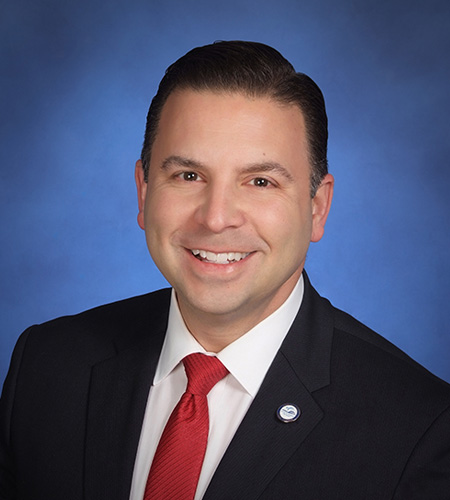Back to school: Safe environments and quality education
By: Diana Bello Aristizábal
Classes begin Aug.15 for Miami-Dade County Public Schools, currently the eighth best-rated district among the state’s 67 after receiving an “A” during the summer for academic performance for the 2023-2024 school year. With this great news and some challenges ahead, families will welcome a new year.
They will do so with the help of Danny Espino, District 5 representative at the Miami-Dade School Board, who was reelected last June. Espino was appointed by Governor Ron DeSantis in November 2022.
Now, with a new term on the horizon, scheduled to begin in November 2024 and conclude in November 2028, he knows clearly what his priorities are for the next four years. “I haven’t finished some of the things I started and that will be my focus from now on.”
Surveillance and faster response
When we talk about back to school, one of the topics people are most concerned about is safety. During this school year, safety will be the number one priority, which means the district will implement new strategies to help decrease the occurrence of dangerous situations or reduce their impact.
 One of them will be to utilize a system called critical response mapping. This technology, approved for the upcoming year, will allow the creation of accurate floor plans of every building in the 573 M-DCPS’ schools in order to provide essential information to local first responders during a critical incident response.
One of them will be to utilize a system called critical response mapping. This technology, approved for the upcoming year, will allow the creation of accurate floor plans of every building in the 573 M-DCPS’ schools in order to provide essential information to local first responders during a critical incident response.
“We have over 300 schools, each set up in a completely different way. When a medical or active shooter situation arises, law enforcement agents arrive on the scene as fast as possible but waste time checking the entire campus to try to understand the information they are receiving. As a result, the response time lengthens,” Espino explains.
However, with this new technology, every building will be located, named and mapped accurately to ensure an effective and efficient response. “With this type of intelligence, response time is reduced by 75 percent. We are in the process of updating all schools’ floor plans so that this system becomes operational.”
Another layer of protection will be the school buses security cameras to be placed in and out of vehicles. Externally, they capture on video people who are breaking the law by, for example, driving around stopped buses.
The plan for the 2024-2025 school year is to finish the installation of inside cameras in all district buses. “Up until now, we have placed cameras in 60 percent of them (as of June 2024). We will continue working to increase that percentage,” the school board member says.
Another goal will be to continue renewing protocols for active shooter situations. The last large-scale drill was conducted on July 18 and currently school resource officers are well trained to enter a scene and attack an active shooter. “The most recent addition to the protocols is family unification that seeks to provide guidelines for uniting parents and children as soon as possible after a crisis.”
School proficiency
In addition to working in increasing security for the school community, another priority will be to improve school proficiency, because although in terms of grades and graduation rate the overall result has been positive, there is still a gap.
“Children are excelling in the FAST and i-Ready assessments, but they aren’t advancing in what we call mastery proficiency. Last year, we conducted a comprehensive assessment in math and reading to try to understand how students can progress in that regard, and one of my conclusions was that we need to focus on early learning, that is, provide access to education before kindergarten to increase proficiency in higher grades,” Espino states.
Florida’s Voluntary Prekindergarten Program (VPK), which is free and aims 4-year-old kids, helps a little but is not enough due to its part-time modality, leaving many full-time working parents out of options.
“There is no law that forces parents to send their children to school before kindergarten, but those who want to do so should be able to, and that is what I’m working on. It’s a fact a lot of students start kindergarten without knowing how to read.”
To move into that direction, the school representative said he is trying to get funds from the state, although he is also thinking on using the district’s available resources. “Maybe we can offer low-cost programs or partner with nonprofit organizations.”
And just as children can begin their academic lives before kindergarten, high schoolers can receive technical training before graduating. This will be another priority for Espino after verifying several students don’t plan to pursue a university degree.
This reality has prompted the district to start offering technical programs in multiple disciplines such as aviation or construction. “If we want our children to be employed after high school, we must give them the opportunity to achieve this without resorting to loans by showing them there are fields with high-paying salaries for which a certification or a license is enough. Better yet, they can begin training on these before graduating from school.”
Ultimately, the goal in mind for the next four years is to make M-DCPS as competitive and attractive to families as private or charter schools, understanding that education is a powerful tool that can help advance a community.

